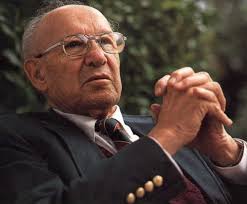“Innovation and change make inordinate time demands on the executive. All one can think and do in a short time is to think what one already knows and to do as one has always done.â€
Peter Drucker – The Effective Executive
Once again, Peter Drucker offers insights for today even though this was originally written in 1967. Taken at face value it suggests that innovation in today’s organizations is a fool’s quest. A few people—Cal Newport, for example, in “Deep Workâ€â€”have begun to pick up on this, but they are distinctly in the minority. They can be nearly impossible to notice or hear in the cacophony of productivity advice, inboxes littered with offers to write your best-selling book in 90 days, and workshops to design your business model in a weekend. We have always been enamored with speed and live in an environment that raises speed to a religion. Thinking hard has rarely been popular.
There are some counterexamples. Bill Gates was famous for his “Think Weeks†where he withdrew from his day to day responsibilities to look beyond the immediate. The question for mere mortals is how to create the time and space needed to do the kind of thinking needed for innovation. Recognizing the challenge is, doubtless, the first step. Few of us have the luxury or clout of a Bill Gates to dedicate entire weeks for deep thought; we can all recognize that some kinds of thinking and reflection require bigger chunks of time and carve out those chunks where they can be found.
Another thing worth doing is to get better at stringing those chunks together in more effective ways. I’ve taken a run at this before, for example,
Distraction is the enemy of reflection. What Drucker is pointing out is that the underlying time demands for innovative thought flow from the demands of clearing your mind of the immediate and building the internal mental models necessary for deep work. I think of it as learning to meditate in a particular direction. We know a good bit about step one from the lessons of meditation. But meditation tends to stop there. The second step is to point your thinking in a particular direction and provide useful supplies for the journey. There is a process and discipline to thinking about innovation that is learnable. It is a skill that can be improved with deliberate practice.

The phrase “Distraction is the enemy of reflection” is important when people want decisions all answers. Sometimes you need to let the question percolate while you think of the possible answers and work them through.
I think this is critical for people who work as consultants.
A nice muse, Jim!